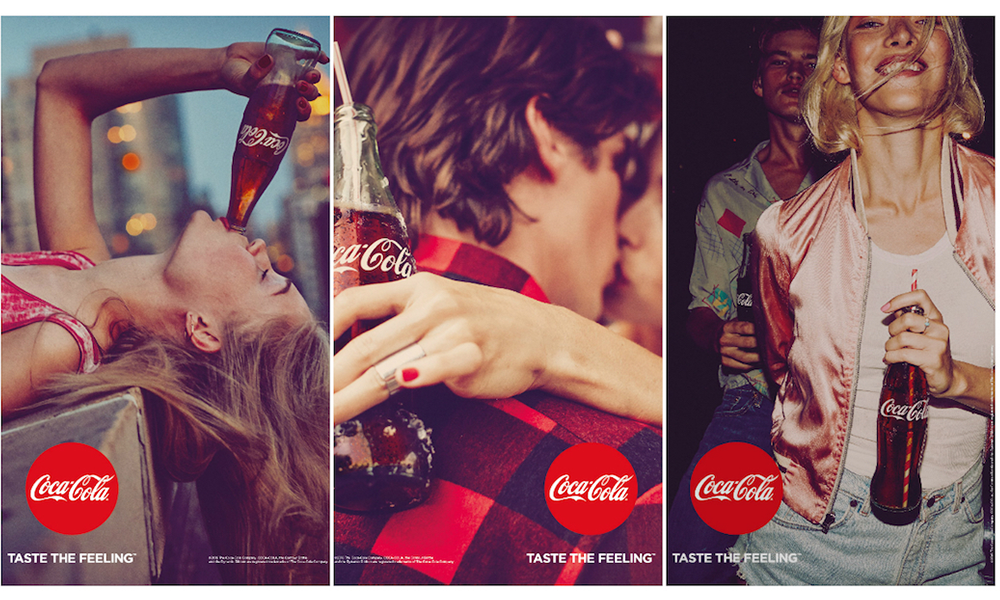
What’s the secret behind ‘brand churches’? Why do people line up in droves at Apple stores when Apple decides to release a new product? Why do most people still prefer Coca-Cola over Pepsi? And why is Harley Davidson still the ultimate rebel motorcycle?
Call it popularity gone wild or faithfulness, but it’s a scientifically proven fact: (some) brands are like a religion. The ultimate example is Apple, with Steve Jobs as (former) God.
- A sense of belonging. Have you ever smiled at the person on the treadmill next to you when you notice he/she is wearing the same brand of sneakers? Whether you are in love with Nike, Neutrogena or Harley-Davidson, chances are you feel a sense of belonging among other users of the brand. This sense of belonging is a profound influence on our behavior.
- A Clear Vision. Most religions also have a clear vision. They are unambiguous in their mission, whether it’s to reach a certain state of grace or achieve a spiritual goal. And of course, most companies have unambiguous missions as well. Steve Jobs’ vision for apple dates back to the mid-eighties when he said, “Man is the creator of change in the world, as such he should be above systems and structures, and not subordinate to them.” Twenty years later, the company still pursues this vision. Like religions, successful companies and brands have a clear, and very powerful sense of mission.
- Successful religions also tend to exert power over their enemies. Religious conflicts have existed since the beginning of time. Having an identifiable enemy gives us the chance not only to articulate and showcase our faith but also to unite ourselves with our fellow believers. This kind of mentality can be seen throughout the consumer world as well. Coke vs. Pepsi, AT&T vs. Verizon, Visa vs. MasterCard, Safaricom vs Airtel. This us-vs-them strategy attracts fans, incites controversy, creates loyalty, and gets us thinking and arguing – and, of course, buying.
- Sensory appeal. Close your eyes and walk into a church, a temple, or a mosque. You’re immediately enveloped in the ambience of the building, as you smell the air, the incense and the fragrance of the wood. If you open your eyes, you’ll see the light reflect off the stained glass. In a way, our senses allow us to “feel” the heart, soul and sheer heft of a religion. Products and brands evoke certain feelings and associations based on how they look, feel or smell. Think of the unmistakable Nokia ring tone, or the pristine, leathery scent of a brand new Mercedes Benz. Whether it’s annoyance or longing, product’s sensory qualities almost always evoke an emotional response.
- Storytelling. Whether the New Testament, Torah or Koran, every religion is built upon a heft of history and stories. And the rituals that most religions draw upon and ask us to participate in- praying, kneeling, meditating, fasting etc.- are rooted in this stories upon which the faith is built. In a similar manner, every successful brand has stories connected to it. Think of Disney, and all the characters that come to mind, from Mickey to Jack Sparrow.
- Most religions celebrate a sense of grandeur. Among the vaulted ceilings and beautiful frescos, the rich tapestries, furniture and paintings in the Vatican, one comes away with the realization that all of us are mere mortals, dwarfed by something far greater than themselves. Preserving this sense of grandeur is so important. Most companies similarly work to evoke the same feelings of awe and wonderment. In fact, just think of any number of luxury brands- the Louis Vuitton flagship store in Paris, Prada’s flagship store in Tokyo, Apple’s flagship stores in New York… all marketed to stir up notions of grandeur.
- Certain companies and products inspire wonder just by the scope of their vision. Thanks to the vision of larger- than-life CEO Richard Branson, Virgin Galactic’s latest grand ambition is quite literally, to take us to the moon. What about the notion of evangelism? When google rolled out its Gmail service, it attracted followers in a devilishly shrewd way. By making the service available by invitation only, Gmail became almost like a virtual religion, when a friend invited you to join, you felt as though you’ve been welcomed into a semi-exclusive, lifelong community.
- Symbols. The cross, a dove, an angel. Just as
religions have their icons, so too do brands and products. For example, every
Apple icon- from the logo itself, to its trash can, to the smiley face you see
when you turn on the computer- is singularly associated with the company. These
symbols evoke powerful associations in us- whether it’s athletic prowess, or
the promise of a cheese burger- in the same way that religious icons evoke
powerful religious associations.

- Mystery. In religion, the unknown can be as powerful as the known. When it comes to brands, mystery can be just as effective in attracting our attention. Coca-Cola, for example, draws on the sense of mystery with its secret formula that is kept in a safe-deposit box inside on Atlanta bank.
















0 comments:
Post a Comment